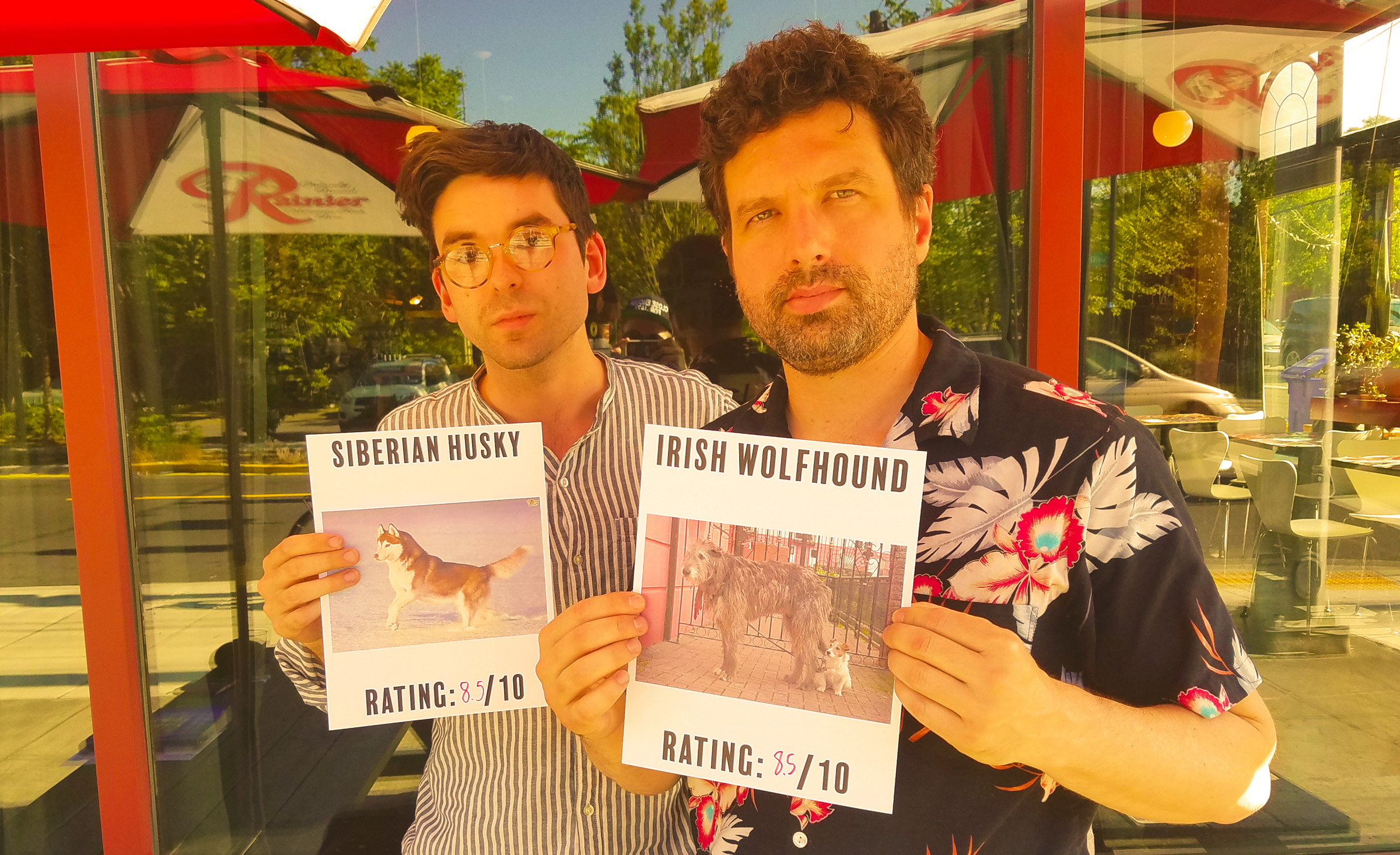Portland, Oregon, duo Golden Retriever initially got their name from a dream that their friend, the multimedia artist Brenna Murphy, had about them, wherein the two were together in a field surrounded by puppies of the breed from whence they borrow their moniker. Their records and live shows could reasonably be considered a response to that initial bucolic vision, with the two (Matt Carlson on modular synthesizer, Jonathan Sielaff on bass clarinet) unleashing rich aural tapestries which follow a similar dream logic to the work of early Tangerine Dream, Éliane Radigue, Laurie Spiegel, and other such utopian futurists. With Rotations, their new album out on Thrill Jockey, they used a grant from Oregon’s Regional Arts & Culture Council to help expand their palette considerably, adding a string quartet, piano, reeds, and more.
All the sparkling sonics aside, though, listening to Rotations lead me to wonder just why the duo’s name favors one dog breed over another. I cornered them both recently during happy hour at local hangout/venue Turn! Turn! Turn! (where, full disclosure, this writer occasionally slings drinks) and asked them to rate some other dog breeds, while also talking about their work.

photo via Wiki Commons
WELSH CORGI
AVERAGE RATING: 8/10
Matt Carlson: They’re adorable.
Jonathan Sielaff: They’re cute. Having never owned one, I can’t say what they’re like as a companion, but I love seeing them.
They’ve got those really dumb butts.
JS: Yeah! I give them an 8/10.
MC: That’s what I was thinking, too. I’m a fan. I don’t really know much about their personalities or anything, but when I see one, I’m really happy… I’ve also never owned a dog, so I don’t know a lot about dogs or what they’re like, or whether I’d get along with one more than another, so I’m really just shooting from the hip here.
JS: I’ve only ever had mutts, except for one purebred, which was a golden retriever.
Did that inspire the name?
JS: No, it had nothing to do with the name.
Well, apropos of the corgi: has Portland’s rapid gentrification made it harder to find places to make and perform your music? I love corgis and all, but I also think they’re harbingers of gentrification.
JS: Well, for the two of us, no.
MC: It hasn’t had that much of a direct impact. We used to play in my house, and now we have a practice space, but it’s pretty cheap. So, that’s money we didn’t have to spend before, but yeah, it hasn’t really had too much of an overall impact on us doing our thing.
JS: It affects the community we’re a part of, and that affects us, but it hasn’t had much of an impact personally.
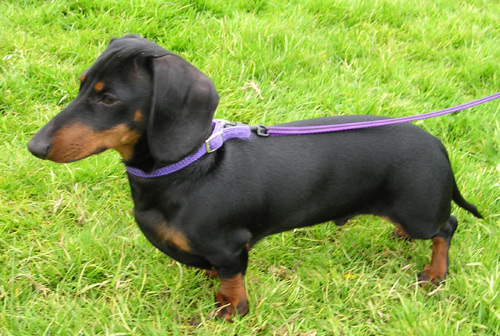
photo via Wiki Commons
DACHSHUND
AVERAGE RATING: 6/10
JS: I also really love these dogs. Some friends of mine used to have one, and they would do professional portraits of them. Olan Mills style, but for dogs. I’ll put the dachshund at 7/10.
MC: I think I’m less stoked on them than you. I’m gonna give it a 5/10, based just purely on vibe.
On your new album, Rotations, some of the compositions seem more “down to earth,” both in structure and texture. Do you think that’s a fair thing to say, and if so, what would you say precipitated that?
JS: I think it’s just the nature of the instrumentation. We were going for a much more “chamber music,” acoustic-oriented sound, and even though we did use electronics, it was just one aspect of the ensemble, rather than the focus.
MC: I think people have this connotation with electronic music and outer space, and I personally don’t have that, at least with the electronic music that inspires me. I think of someone like Éliane Radigue as being a particularly earthy kind of composer… Her music sounds like looking at a river, or like lots of patterns feeding off each other. The absence of the electronic foreground [on Rotations] might make it seem earthier, but to me, there’s a clear continuity from our previous records.
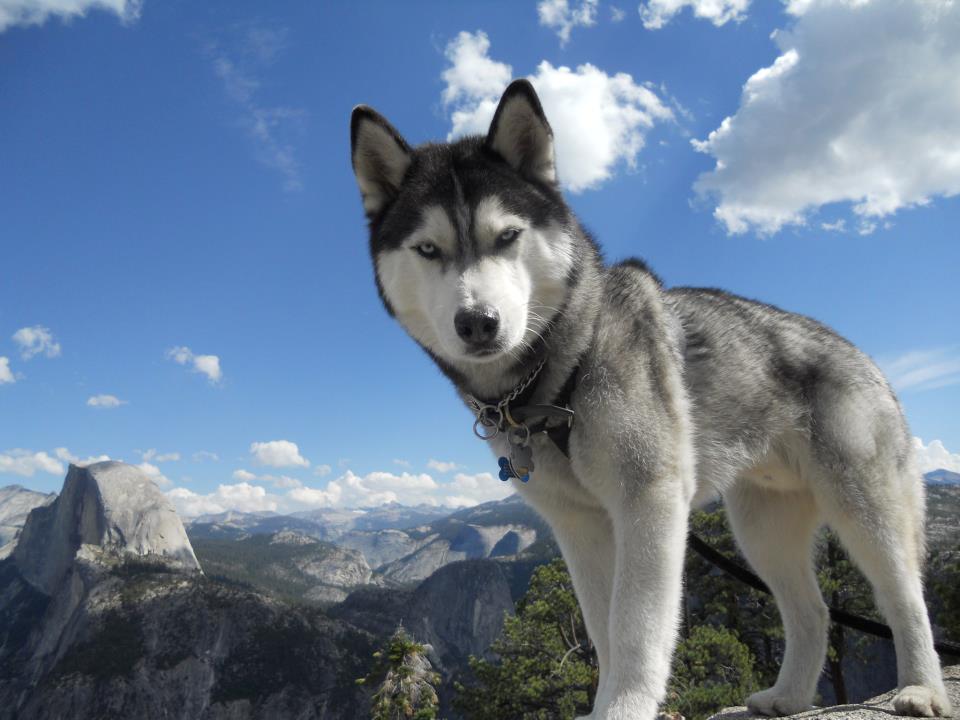
photo via Wiki Commons
SIBERIAN HUSKY
AVERAGE RATING: 8.5/10
MC: This is the type of dog that I would want to have, were I to get a dog. I like a dog that has some substance to it, that you could cuddle with in bed. They seem really loyal, and like they don’t tweak out and bark a lot. I’d give this one a 9/10.
JS: I love their eyes and their look. Aesthetically, they’re a cool dog. They need a lot of attention and room to run around, unlike a city dog, so they’re not really practical for my lifestyle. That said, they’re also a working dog, and I have a lot of respect for working dogs, so I’d have to go up there with an 8/10.
MC: One quality I like in a dog in reasonableness, where they don’t jump to the worst conclusion about every stimulus. Huskies always seem even-keeled.
With the expanded palette on Rotations, one also gets a sense of grander space. Some of the tracks even border on “epic.” Was that by design, or is that just an illusion brought on by having more instruments?
JS: Well, when we play with electronics, we do make a lot of “tapestry-style” music, where it’s less about linear movement and more about a cloud of sound. There’s still some of that on this album, but there are also some times when we were playing with more of a traditional structure.
MC: I think it also has to do with just wanting the pieces to have an arc. When you have so many instruments to work with, it’s tempting to make something really dense and crazy, but we wanted to make music that could be really spare—where just one sound goes down, another comes up, and the structure is really jagged.
JS: We tried to do a mix of things on Rotations, where some parts are very dense and collage-like, and then others where there’s a clear melodic or emotional trajectory.
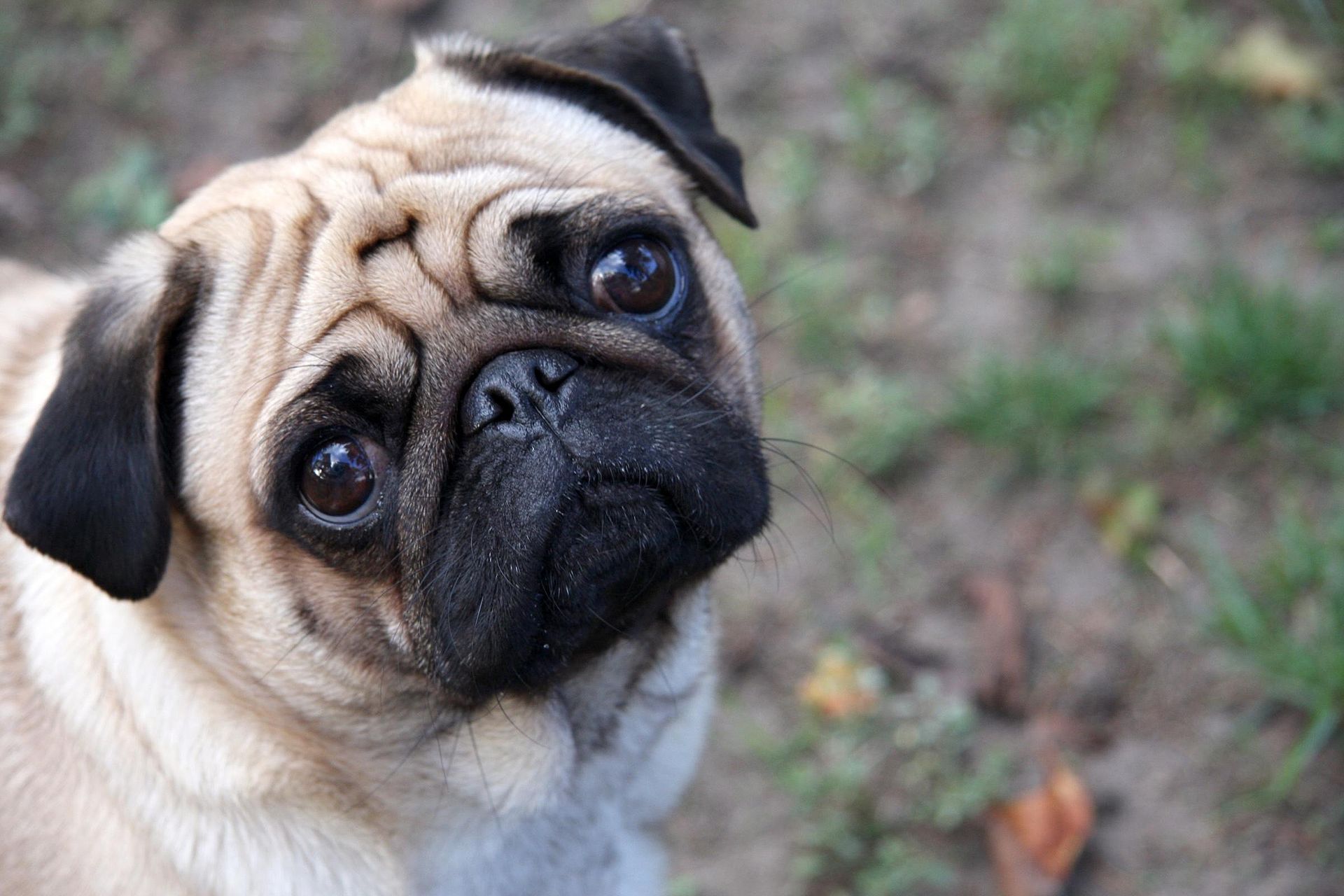
photo via Wiki Commons
PUG
AVERAGE RATING: 6.5/10
JS: I think Pugs are adorable. They’re some of the gnarliest-looking animals I’ve seen, but in a cute way. Similar to bulldogs, though, there’s a lot of cleanup, a lot of maintenance done on their little heads, so I wouldn’t want a pug. I’ll put it down at 6/10.
MC: I think I like them a little more. Despite my stated aversion to tiny dogs, this one is so absurd that it’s just endearing. If I were going to get a dog, it’s also not what I’d go for, so I’m going to go for 7/10.
I think that’s fair. They were my favorite until I seriously considered the ramifications of owning one. They’re gross. They’re basically a physical manifestation of man’s inhumanity to dog. So, the new track “Thirty-Six Stratagems,” compared to the rest of the record, is more bracing in its dissonance, almost into noise music territory. With that in mind: do you find beauty in what some might perceive as ugly?
JS: Absolutely.
MC: With all artforms, I’m attracted to things that repel me at first. I’m not sure what that’s all about, but I’ll get curious about why these things bother me so much, and then I’ll revisit them and find something interesting. The first classical and jazz music that I liked was always the most fucked up stuff, and that was my way into that world. I would be like, “Fuck Mozart, that’s bullshit! It’s all about George Crumb,” or something like that.
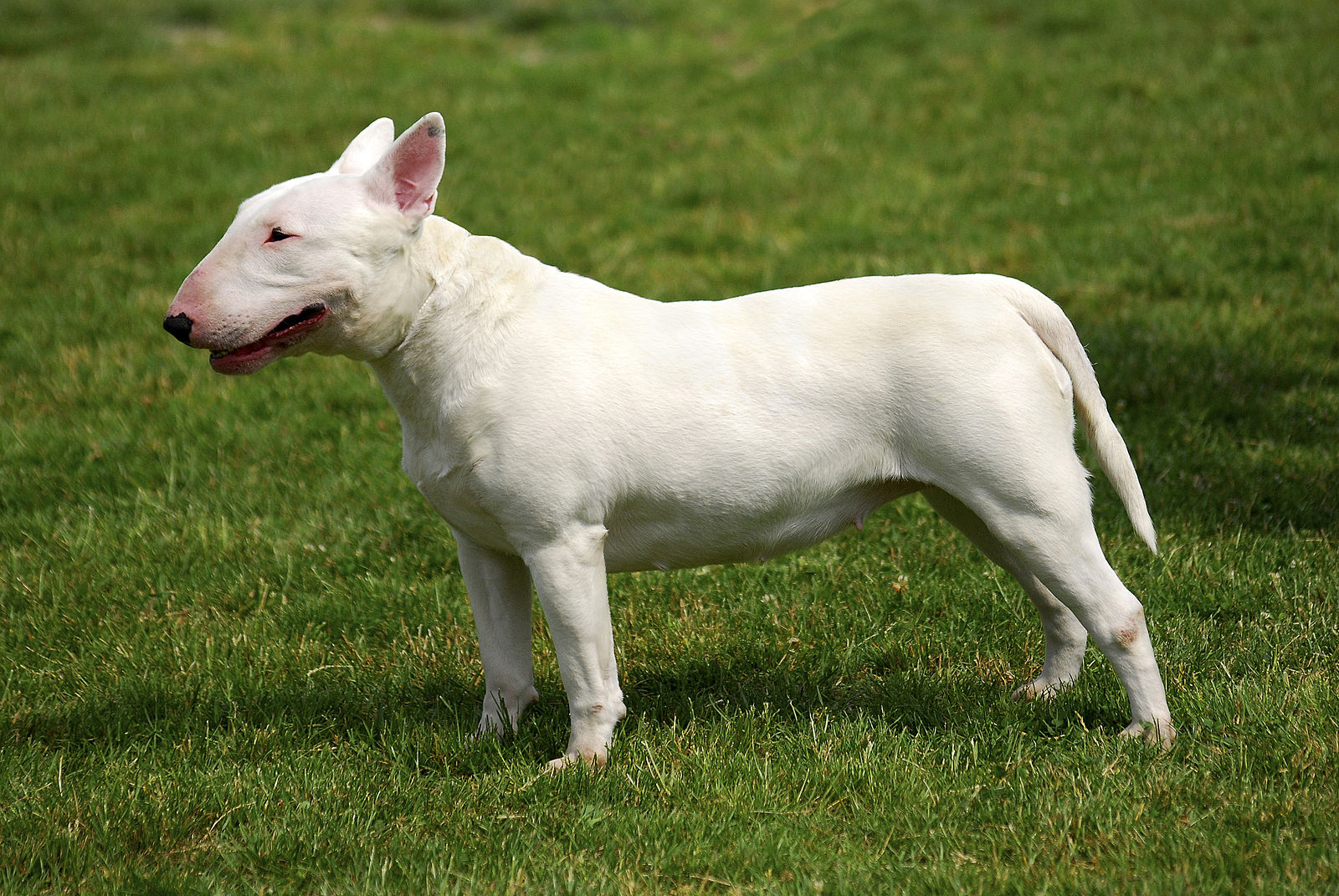
photo via Wiki Commons
BULL TERRIER
AVERAGE RATING: 4.5/10
MC: So weird.
JS: I will say that I’m not a fan of bull terriers, partly because of the Spuds MacKenzie/bro beer ad vibe, but also because they are really strange-looking. Not in a cute way—in a weird way. That also makes them kinda cool, though. I’d put a bull terrier down at 4/10.
MC: Yeah, this is interesting, because this ties into what I was just saying and kind of challenges it, because this is a dog that, when I see it, it makes me uncomfortable. According to what I said, that should make me more interested in it, but I can’t shake the creeped-out feeling I get from it. I’m gonna say 5/10. What would it take for us to give a dog a one or two?
JS: I don’t think any dog deserves that low of a number, without it just being one particular shitty dog. This is one of the lowest as far as emotional appeal to me, but I do love the challenging aspects of this dog.
MC: It interrogates your preconceptions of what makes a good dog.
Indeed. So, Spuds MacKenzie is the most famous bull terrier, and he’s a rock and roll animal. Portland has always felt like an overwhelmingly pop/indie rock town to me, like it’s almost oppressively against being too challenging. How do you feel about Portland’s interest in, and response to, more experimental work?
JS: I think there have been different chapters in Portland’s history. In the 1990s and early 2000s, people embraced challenging music here, but as more people moved here and the Portlandia effect set in, all these breweries and this folksy scene kind of blossomed and overrode all the weirdo shit that was this city’s signature beforehand.
MC: I moved here from Seattle in the mid 2000s, and part of the reason I moved here was because Seattle was such a rockist town at that time that I felt like nobody would ever give my music a chance. Whenever I came down here to play, there’d be a weird free jazz band, a no-wave band, a DJ, and a singer/songwriter… It seemed very open-minded. When I moved down, the community was immediately really supportive.
JS: Another factor, though, is that most of what gets made in Portland is whatever works well in bars. There’s not a big arts infrastructure. What’s made our music possible is that we do play in clubs, even though we like playing galleries, concert venues, and those types of places.
MC: This also ties back to your first question, because that’s a place where you see the effects of gentrification. The scene I was talking about was dependent on a bunch of weirdos, that were barely employed, having affordable housing where they could experiment and have shows in their basements. When everyone is working full-time or pushed out to the suburbs, there can’t really be a scene.
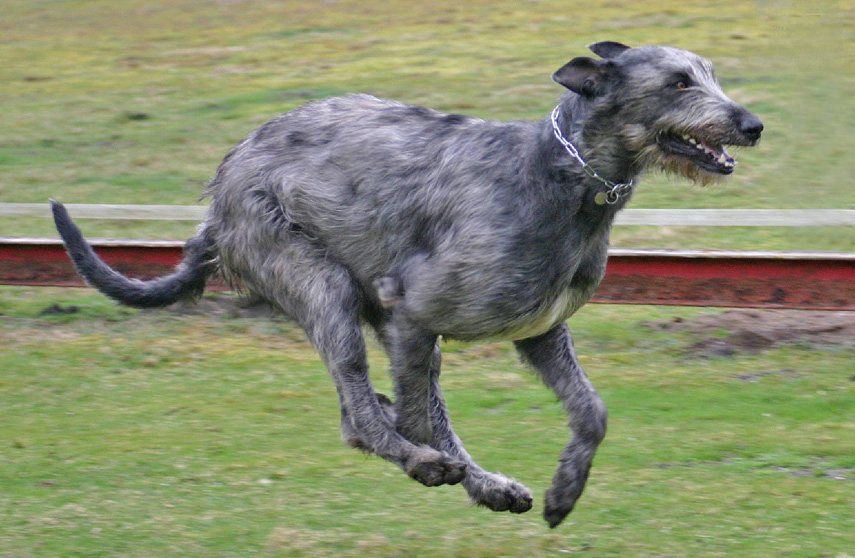
photo via Wiki Commons
IRISH WOLFHOUND
AVERAGE RATING: 8.5/10
JS: The Irish wolfhound, from a young age, I always called my favorite dog. I knew nothing about them, except that they looked cool and that they were enormous. The thing is, though, they’re really stinky… But they are mellow. I like a big, mellow dog. I wouldn’t own one because of the stink, but as far as rating a dog on coolness, that’s a 9/10.
MC: Is there any dog you would own?
JS: Yeah, like a mutt, small to midsize.
MC: How tall do these get? I’m into them. They have a cute face, like a puppy, but they’re so big. I think I’ll go 8/10. That’s an 8.5. Do we need to do a tiebreaker with the husky? Do we need a winner?
No, they’re all winners.
JS: Both the husky and the wolfhound are really cool dogs. The other dogs are funny or cute, but these two are what you’d want classically in a dog. They’re not goofy, they’re noble.
MC: With some of the little inbred dogs, it’s like you’re not supposed to respect them.
Irish wolfhounds, on the other hand, were originally dogs of war. They’d be used to pull humans off of horses in battle. We live in an especially embattled time. Has that climate given either of you pause in terms of how your work fits in, or inspired a change in approach because of the outside climate?
JS: It’s given it a different weight. We’re always trying to make something beautiful, even if it’s a tumultuous beauty. I don’t feel like what we’re doing is easily politicized, and I wouldn’t try, but I think it can bring joy to people, and bring people together, which is really important right now.
MC: For me, it’s always a struggle: What’s the point of making art, when a million children died today just from not having clean water, while I’m spending my time making weird squiggly noises? With the last election, though, I kind of had the opposite thing happen from what I’ve heard from other artists. Immediately after the election, when there was this feeling that we had just gone through a national trauma, we both had people reaching out to us saying that our music had really been helping them through it. That made me feel like we really need to keep doing it. It helps people, even if it’s in ways that are hard to quantify.
JS: When you have a culture whose emphasis is just on money and industry, this cutthroat thing where beauty and art aren’t important anymore, I think that’s when it’s really critical to keep making these things and speaking in this way. If we don’t have art, if we don’t have beauty and things that give us joy in life, then what are we living for? FL

